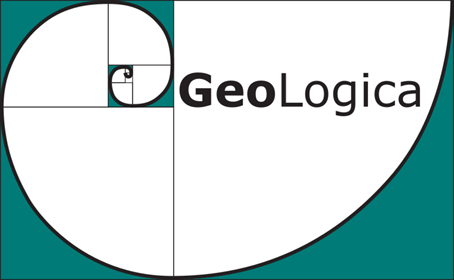
Geologica provides an update on upcoming online training courses.
Critical Resources – Rare Earth Elements

- Tutor: Holly Elliott, Lecturer at the University of Derby
- Date: 06 - 10 Sep 2021
- Location: Online
Overview
This course covers all aspects of rare earth elements (REE) as critical resources, both in terms of technological advancement and combating climate change. We shall delve into the major sources of these elements, their tectonic settings and the enrichment processes that lead to deposit formation. The characteristics of major REE deposits shall be investigated, using international case studies, to determine typical exploration methods and factors affecting processing.
An Introduction to Offshore Seismic Data Acquisition

- Tutor: Malcolm Lansley, Consultant Geophysicist
- Date: 08 - 09 Sep 2021
- Location: Online
Overview
Participants will learn the steps necessary to plan successful offshore seismic acquisition projects, and also how to work with contractors to ensure that projects are executed safely and according to plan.
Introduction to Low Enthalpy Geothermal Exploration

- Tutor: Mark Ireland, Lecturer in Energy Geoscience, Newcastle University
- Date: 13 - 17 Sep 2021
- Location: Online
Overview
This course covers all aspects of low enthalpy geothermal exploration and production. It is intended as an introduction to the entire lifecycle of low enthalpy geothermal resources, with covering aspects of geoscience and engineering.
Subsurface Pressures for Injection of Fluids and Gases

- Tutor: Professor Richard Swarbrick, Manager, Swarbrick GeoPressure Consultancy
- Date: 20 - 24 Sep 2021
- Location: Online
This course covers all aspects of subsurface pressures with particular emphasis on pre-drill estimates and the conditions for injection and storage of fluids and gas, including hydrogen and CO2. Methods for estimating pressures from rock and fluid properties will be reviewed, as well as the processes which determine them in the subsurface prior to drilling. The impact of rock strength relative to fluid pressure at depth will also be discussed, in relation to injection rate limitations and storage volumes.
Holistic Exploration Workflow for Critical Mineral Exploration

- Tutors: Graham Banks: Founder and Principal Geologist, Route To Reserves, Associate Principal Geologist in the Americas, Southern Geoscience Consultants and Steve Fehr, President of Orca Global GeoConsulting
- Date: 27 - 30 Sep 2021
- Location: Online
Overview
This course presents a recommended workflow for critical minerals explorers: from province to prospect scales. During the exercises, you will apply concepts and skills that are fundamental for all exploration geoscience activities – in industry and research –including: the mineral system framework, exploration as a predictive activity, chance of geological success, uncertainty, risk, value of information and respectful teamwork. The examples will be for rare earth elements (REE) and nickel. The mineral system approach for critical minerals is still at a nascent stage. This course presents some of the progress to date. However, your ideas and contributions could shape a global exploration process.
Applied Structural Geology for E&P

- Tutor: W. Lansing Taylor, Independent Consultant
- Date: 04 - 13 Oct 2021
- Location: Online
Overview
Structural geology is a fundamental discipline of the earth sciences with direct application for geoscientists and reservoir engineers involved in conventional and unconventional oil and gas exploration and development. This course provides knowledge and workflows for two common processes:
- The interpretation of structural features from seismic images to identify traps in hydrocarbon-bearing basins.
- The geomechanical characterization of unconventional reservoirs to optimize hydraulic fracture operations.
Structural geology is about the physical processes that deform rocks producing faults, fractures, folds, unconformities, growth strata and local diagenetic phenomena. At the seismic scale, the geometric arrangement of these structural features produces the characteristic forms of hydrocarbon traps. At the reservoir scale, the presence of structural features strongly impacts reservoir quality and connectivity.
Workflows for Seismic Reservoir Characterization

- Tutor: Patrick Connolly, Director, Patrick Connolly Associates; Visiting Lecturer, University of Leeds
- Date: 04 - 14 Oct 2021
- Location: Online
Overview
This course will provide participants with the skills needed to design and implement workflows for seismic reservoir characterization using established best-practice and emerging technology. The course covers seismic conditioning, colored inversion, AVO theory including elastic and extended elastic impedance, DHIs, seismic net pay, well ties, rock physics, and deterministic and probabilistic inversion including the application ODiSI.
Aquifer Thermal Energy Storage

- Tutor: Matthew Jackson, Chair in Geological Fluid Dynamics, Imperial College London
- Date: 04 - 08 Oct 2021
- Location: Online
Overview
This course covers all subsurface aspects of Aquifer Thermal Energy Storage (ATES) and includes a brief overview of surface engineering and infrastructure requirements. The course includes an introduction to ATES, aquifer characterization for ATES, including geological and petrophysical considerations, ATES performance prediction, including modelling and simulation, and engineering considerations, including ATES system management and optimization.
Fractures and associated Structural Concepts for the GeoEnergy Transition: a virtual field course

- Tutor: Richard Jones, Geospatial Research Ltd
- Date: 11 - 15 Oct 2021
- Location: Online
Overview
Making extensive use of virtual outcrop technologies, this course will provide participants with a field trip itinerary that includes contrasting natural fracture networks from a wide range of rock types and structural settings. The course will combine fieldwork-based appraisal of fractures with collation and processing of different types of fracture data and their practical uses in GeoEnergy Transition applications.
KeyFacts Energy Industry Directory: GeoLogica l KeyFacts Energy news: Training
 KEYFACT Energy
KEYFACT Energy